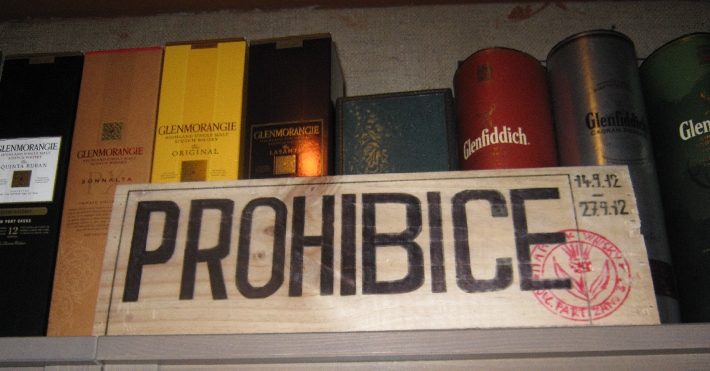
Before I get back to blogging about truly ‘spiritual matters’, (please forgive the obvious pun 🙂 ), I thought I’d better explain the current situation regarding the ban on the sale of alcoholic drinks exceeding 20% proof which has been the subject of my two most recent posts. As can be seen in this photograph, the ban was partially lifted on Thursday 27th September, much to the pleasure our nearby whisky bar.
Since Thursday 27th September, the Czech Ministry of Health has allowed the sale of any liquor that can be shown to have been produced before 31st December 2011. As far as liquor produced this year is concerned, retailers must get a certificate of the alcohol’s origin within 60 days. Otherwise these bottles must be destroyed.
The death toll from the current outbreak of methanol poisoning now stands at twenty-seven with more than seventy others being hospitalised. However, there is quite a consensus amongst health professionals, that some earlier deaths may also have been due or partly due to methanol poisoning, prior to the problem being identified at the beginning of September. This is the reason that 31st December 2011 has been chosen as the cut-off point rather than a date sometime into 2012.
Whilst the police have arrested several people, confiscated thousands of litres of contaminated liquor and found supplies of fake labels, they still haven’t located the exact source of the methanol poisoning. In particular, they haven’t identified and arrested those who masterminded this deadly crime. They just seem to have caught a few of the ‘indians’ but none of the ‘chiefs’.
The Czech government is promising that in future, there will be regular checks by Health Inspectors of bottles of liquor on sale in both bars and shops, together with a crackdown on illegal production and illicit sales. Whether these words will be turned into positive actions we wait to see 😉



